Harvard’s training ground for global leaders — why did China’s participation end?
Most leaders from developing countries take pride in having attended the Harvard Kennedy School. However, the situation in China is different, remarks commentator Qinglian He.
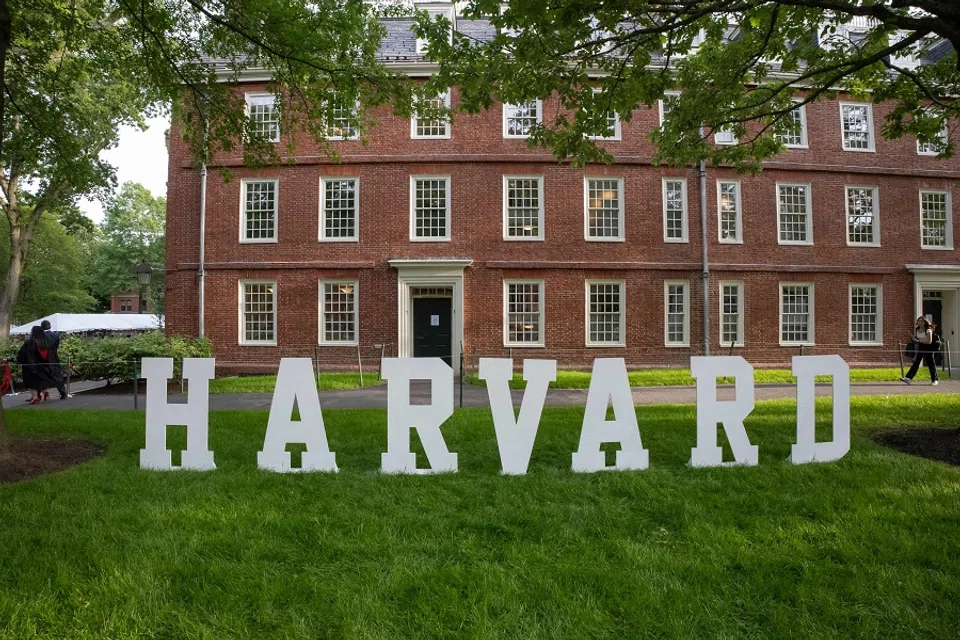
The legal dispute between the Donald Trump administration and Harvard University brought to light the historical collaboration between Harvard Kennedy School and the Chinese government. Critics have cited this as evidence of Harvard’s alleged collusion with the Chinese Communist Party (CCP).
This happened not too long ago, and I kept a close eye on the programme at the time. I was once invited to speak at Harvard and discussed this matter with two Chinese officials. Hence, I would like to analyse why this collaboration emerged and why it ended in light of the China-US relations at that time — in particular, the attitudes of the CCP in 2013 and the Trump administration of today towards this cooperation, and the sea change that transpired.
... in the 1990s, the US not only passionately served as a guide for China’s “governance by rule of law”, it also helped nurture a new generation of leaders with an international perspective.
Harvard a key measure for China’s international integration
Under Jiang Zemin’s leadership, “integrating with the international community” was a fundamental direction for China’s international strategy. Since US President Richard Nixon’s “ice-breaking” visit to China, the US had adhered to a China strategy established during Henry Kissinger’s time: to engage, cooperate, influence and change. During US President Bill Clinton’s era, cooperation entered its peak, paving the way for China’s entry into the World Trade Organization, and “influence and change” became a key priority.
Since the 1950s, the US adopted a foreign strategy to “peacefully transform” socialist countries; it understood clearly that the best way to influence China was to influence the thoughts of its people. Thus, in the 1990s, the US not only passionately served as a guide for China’s “governance by rule of law”, it also helped nurture a new generation of leaders with an international perspective. This was the context for the Harvard Kennedy School’s collaboration with Chinese officials.
In March 2012, when the Bo Xilai incident occurred, the fact that Bo’s son, Bo Guagua, and Xi Jinping’s daughter, Xi Mingze, were studying at Harvard became media fodder.
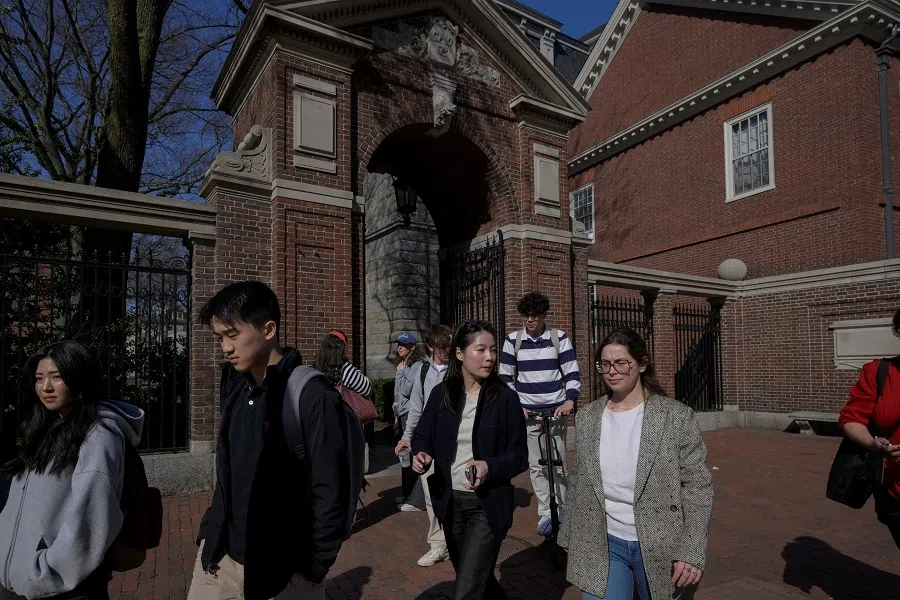
On 23 May 2012, American online magazine Slate published an article by senior political commentator William J. Dobson titled “The East Is Crimson: Why is Harvard Training the Next Generation of Chinese Communist Party Leaders?” The article mentioned that besides the children of several Politburo Standing Committee members, “there are people far more important than the children of Chinese party leaders attending Harvard and other elite US universities: Chinese leaders themselves”.
The article pointed out that carefully vetted officials were sent abroad to study in specially designed programmes at some of the world’s finest universities, starting with Harvard and later expanding to Stanford, Oxford, Cambridge, the University of Tokyo and others.
At that time, Barack Obama was not yet president, and Harvard had not yet begun DEI (diversity, equity and inclusion) reforms. The school’s approach was in line with the US government’s diplomatic direction towards China: influence and change.
Dobson learned from Lu Mai, who heads the China Development Research Foundation that oversees the programme, that as early as 2011, China had already sent over 4,000 officials overseas.
Among the high-ranking Chinese officials at the Kennedy School, the most prominent was Li Yuanchao. In 2001, Li, then deputy secretary of the Jiangsu Provincial Party Committee and secretary of the Nanjing Municipal Party Committee, was sent by the Organization Department of the CCP Central Committee to participate in the “Leaders in Development” training programme at the Kennedy School. He was 51 years old then, poised to become a pillar of the fourth generation of leaders.
Harvard’s training of Chinese leaders born out of needs of both US and China
At that time, Barack Obama was not yet president, and Harvard had not yet begun DEI (diversity, equity and inclusion) reforms. The school’s approach was in line with the US government’s diplomatic direction towards China: influence and change. The collaboration began in 1996 with various iterations over time, but ended after Xi Jinping became leader of the CCP in 2013.
One can get an overview of this “China-US collusion” by reviewing public information. The project between Harvard University and the Chinese government to train high-ranking officials started in 1996, with around 60 officials and 48 military officers attending Harvard Kennedy School that year.
From 1996 to 2012, Harvard had trained over 1,000 Chinese government officials of various levels.
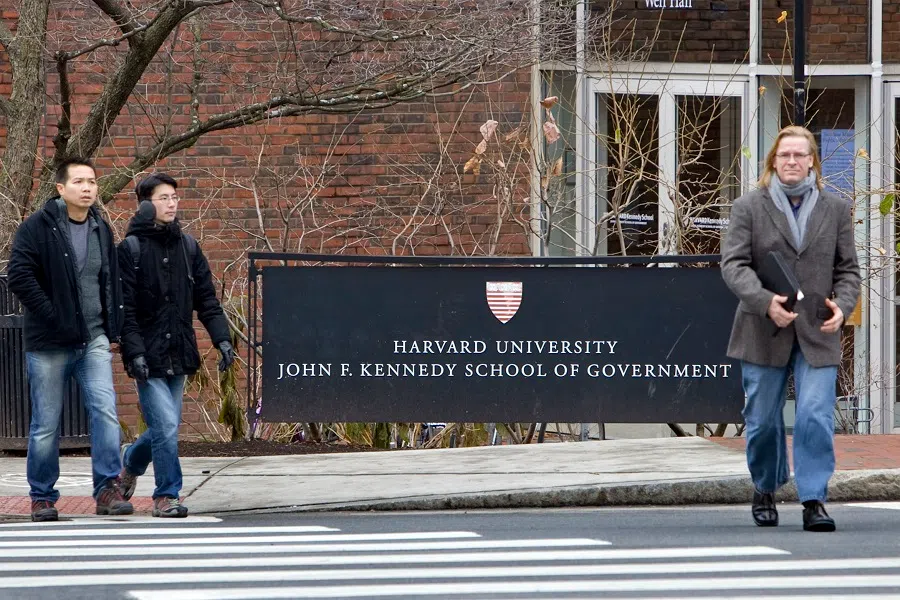
Over the next decade, there were at least three major collaborative projects between Harvard and Chinese officials: the first was the “New World/Harvard Kennedy School of Government Fellows Program” launched in 1998. The programme was initiated by the New World Development Company Limited and the State Administration of Foreign Experts Affairs with Harvard Kennedy School, and supported by then Minister of the Organization Department Zeng Qinghong. According to the agreement, the Kennedy School would train 20 Chinese officials annually, with four to six participating in medium-term training for a semester, while others attended a short-term training for four weeks, all conducted in English.
The second was the China Advanced Training Course of Public Administration launched in 2001, jointly organised by the China Development Research Center under the State Council, Tsinghua University and Harvard University. The programme had trained over 600 Chinese officials at the director-general level and above, including several at the provincial and ministerial levels. The third was the China Advanced Health Executives Training Program launched in 2005.
The Harvard Kennedy School also trained a group of senior officials who obtained a Master of Public Administration degree, such as Liu He, director of the Central Financial and Economic Affairs Commission; Lu Mai, secretary-general of the China Development Research Foundation; Zhang Xinsheng, former education vice minister; and Wang Zhenyao, former director-general of the Ministry of Civil Affairs.
From 1996 to 2012, Harvard had trained over 1,000 Chinese government officials of various levels.
Aim to cultivate Chinese leaders in touch with the world
The Harvard Kennedy School — one of Harvard University’s graduate schools — is an elite public policy school globally. The Mason Program, established in the 1960s by the school, aims to train senior management personnel from developing countries and transitional economies.
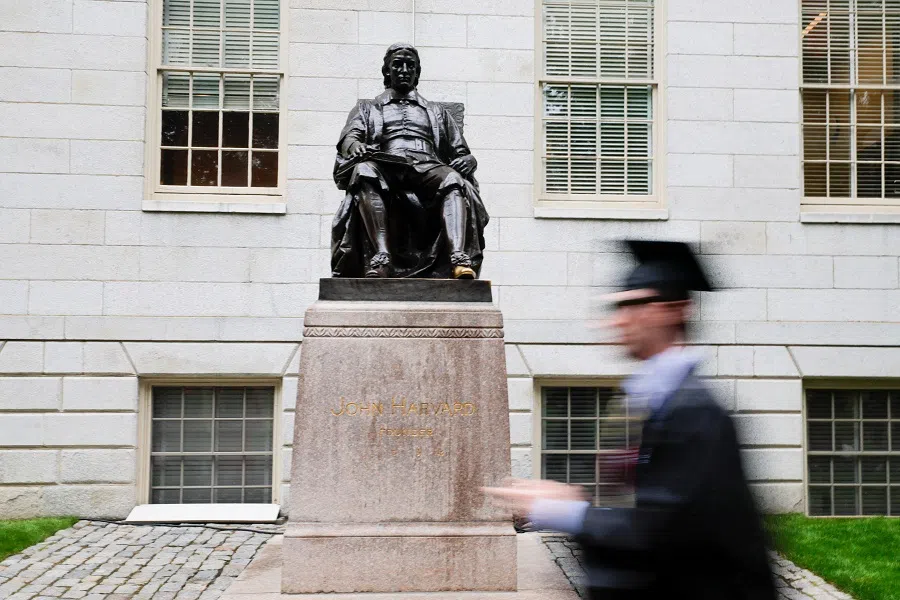
After a year of study, students who meet the requirements are awarded a Master of Public Administration degree from Harvard University. The programme admits 50 to 60 participants annually from various countries or regions, making it highly competitive. Alumni from Asian countries and regions include former Singapore Prime Minister Lee Hsien Loong, former Hong Kong Chief Executive Donald Tsang and former UN secretary-general Ban Ki-moon.
The Kennedy School’s Ash Center designed a curriculum specifically for this programme, aiding in broadening the horizons of the Chinese participants.
Bao Mingyou, a Mason fellow, wrote in his book Perspective without Frontiers: My Thoughts and Learning at Harvard (《视界无疆:我在哈佛的学与思》) that according to the school’s regulations, Mason participants must complete eight credits during their year of study (generally, each class module is one credit). At least three modules must cover these three major areas: leadership, strategic management and quantitative analysis. The courses include “Political and Economic Relations in International Trade”, “Fundamentals of Negotiation Analysis and Practice”, “The Business-Government Relationship in the US”, “ Leadership Performance”, “Constructing Institutional Foundations for a Modern Economic Nation”, “International Financial Policy Economics” and “Overcoming International Workplace Barriers”.
The professors teaching these modules are renowned figures in both the political and academic circles. Ricardo Hausmann, who teaches development economics, was then the director of the Harvard University Center for International Development and a former chairman of the IMF-World Bank Development Committee and chief economist of the Inter-American Development Bank.
Brian Mandell, who teaches “Fundamentals of Negotiation Analysis and Practice” is one of the most popular professors at the Kennedy School, and often advises on US government negotiations.
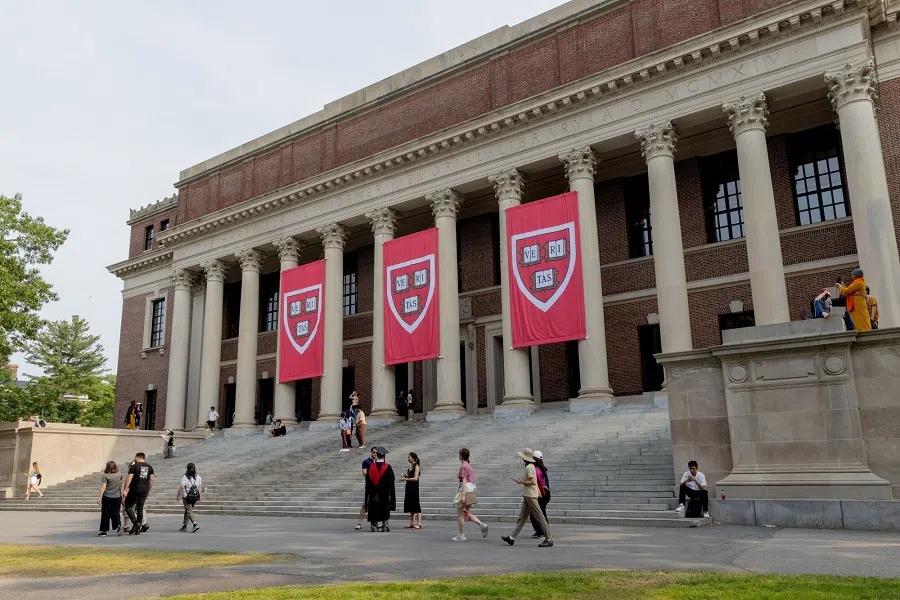
Roger Porter teaches “The Business-Government Relationship in the US” and has extensive experience in the US government and large enterprises, having served as an economic adviser to several presidents, including Gerald Ford and George H.W. Bush.
The classes emulates the famous case study method from Harvard Business School, focusing on specialised topics such as US policy and government, media operations, negotiation strategies and even social media.
During Hu Jintao’s era, the notion of “guarding against Western colour revolutions” resurfaced, but Jiang Zemin and Zeng Qinghong’s influence remained strong.
Impact of the Harvard programme
These programmes at Harvard are targeted at helping developing countries integrate with the international community, to quickly enter the US-led international system. Most leaders from developing countries take pride in having participated in the training. However, the situation in China is different.
During Hu Jintao’s era, the notion of “guarding against Western colour revolutions” resurfaced, but Jiang Zemin and Zeng Qinghong’s influence remained strong. Li Yuanchao believed that his studies at the Kennedy School introduced to him many cutting-edge development concepts, and broadened his horizons. Therefore, during his time as head of the Organization Department from 2007 to 2012, he promoted attracting returning talents and training county-level officials.
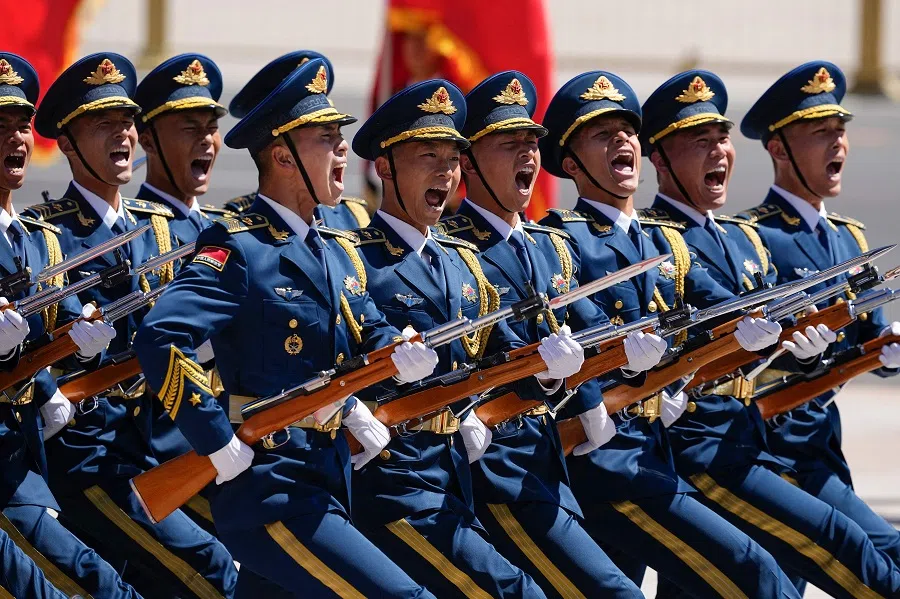
At the same time, Chinese officials felt that this was an attempt to “peacefully transform” China. After Xi Jinping’s accession and Li Yuanchao’s political marginalisation in 2013, propaganda film Silent Contest (《较量无声》) was released in June by the National Defense University alongside four other institutions. It listed the first front of competition between China and the West as “political infiltration to gradually influence our political direction through various means”, claiming that the West, especially the US, hoped to “establish contact with more open-minded Chinese officials, and placed an emphasis on educating and training Chinese government officials”.
... due to domestic political reasons, the US has denied this slice of history still tinged with lingering warmth. It is not only unfair to those involved, it is also a sharp about-face of its foreign policy...
Unlike the concurrent emergence of diametrically opposing views in China, back then the US unanimously felt that opening up to China and promoting market-oriented economic reforms in China would facilitate its democratisation. One of the goals of the Harvard programme was to enable developing countries to learn from the successful governance experiences of Western capitalist countries — for China, it served as a way to advocate for economic reform and open policies. Julian Chang, executive director at the Ash Center, expressed the hope that these programmes can help regions around the world better understand global governance.
Joseph Nye, then dean of the Kennedy School, believed that training Chinese officials had become a highly influential project for Harvard University with support for the programme a priority for the Kennedy School, and that from the Chinese students, they saw hope for China’s future.
Today, due to domestic political reasons, the US has denied this slice of history still tinged with lingering warmth. It is not only unfair to those involved, it is also a sharp about-face of its foreign policy — one that lacks objectivity and is likely to cause confusion.
This article was first published in Lianhe Zaobao as “哈佛成为“第一党校”意在和平演变而非勾结”.




![[Big read] When the Arctic opens, what happens to Singapore?](https://cassette.sphdigital.com.sg/image/thinkchina/da65edebca34645c711c55e83e9877109b3c53847ebb1305573974651df1d13a)
